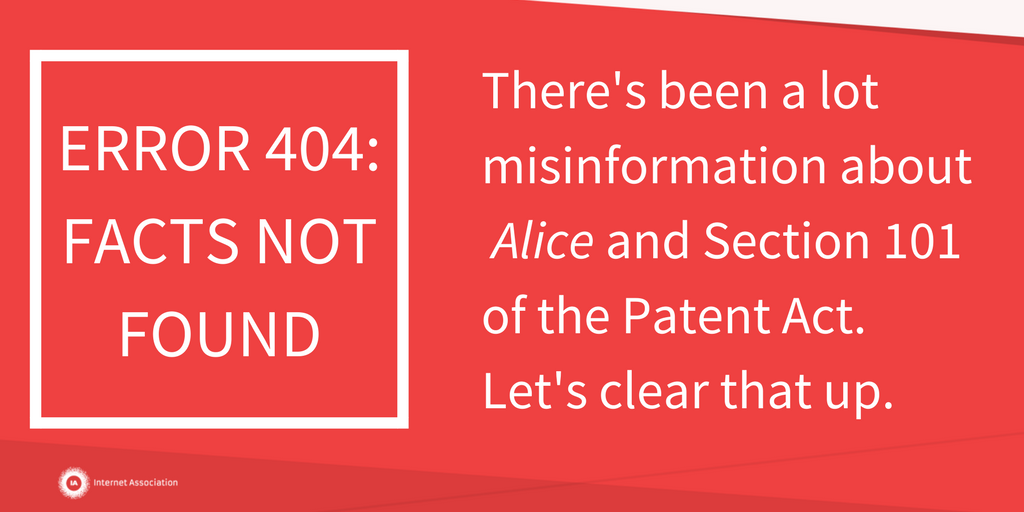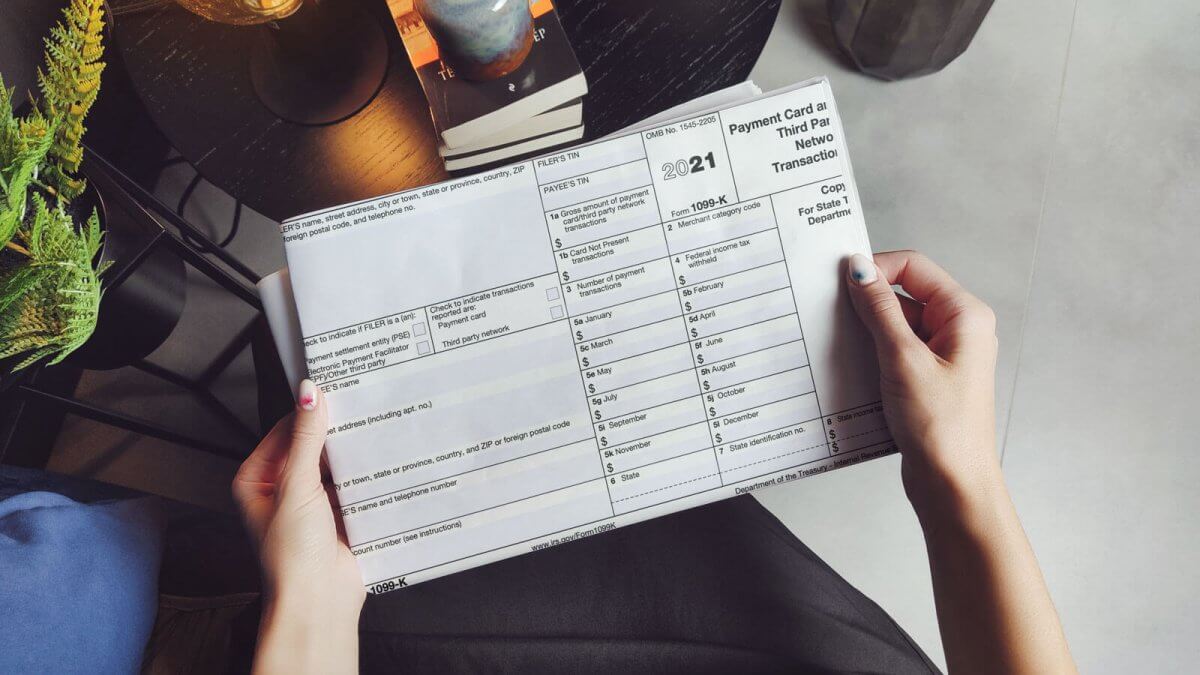
In 2014, the Supreme Court issued a key opinion in Alice Corp v. CLS Bank International that rejected low-quality patent claims that failed to meet legal criteria. Recently, certain interest groups – dissatisfied with the requirement that patents not cover abstract ideas or simple business methods on a computer – have started shopping the idea that Congress should “fix” recent court cases like Alice. Judicial application of Section 101 to nascent technologies consistent with the law is not new: for over 100 years, from the telegraph to the internet, courts have successfully applied the abstractness exception to provide patentees’ guidance on appropriate tests for subject matter eligibility. Below, we clear up a few of the rumors swirling around Section 101 post-Alice and sum up the reasons legislation is unnecessary and misguided.
Myth: Alice undermined patent rights.
Fact: Alice confirmed Section 101 of the Patent Act plays an important role in ensuring that patents encourage innovation rather than hinder it by focusing on real advances in technology rather than broad, vague business methods and abstract ideas.
Alice didn’t change the law: it restored balance and quality standards intended to provide patent protection for truly useful, novel ideas under Section 101.
Section 101 of the Patent Act defines patent-eligible subject matter: “any new and useful process, machine, manufacture, or composition of matter, or any new and useful improvement thereof” is patent-eligible. Software and servers that implement novel and useful processes that provide a technical solution to a technical problem, for example, are eligible for patenting under Section 101. For over 150 years, Section 101 has been key to the notion that abstract ideas and laws of nature cannot be patented because they can be used by all to foster unique inventions.
In Alice, the Supreme Court struck down the validity of patent claims that recited a non-technical abstract idea under the judicial exception for abstract ideas under Section 101. Many of the patent claims invalidated citing Alice cover simple, non-technical ideas that were performed using the routine functions of a computer or the internet, like upselling to customers in an online store, buying an airline ticket online, sending emails with package tracking information or managing a bingo game. In sum, “doing it on a computer” for abstract ideas doesn’t qualify for a patent.
Although these patents might have described using a computer or the internet, they did not contain any inventions or technical advances that improved the operation of a computer.
Myth: The test for subject matter eligibility is too unpredictable post-Alice.
Fact: The courts have provided clear guidance on testing for abstractness, ensuring that patent applicants, the public, and the Patent and Trademark Office can focus on high-quality patents.
The courts have provided the public and the PTO clear and appropriate guidance. They have distinguished between ineligible claims that simply recite results accomplished by software, and eligible claims that specify the inventor’s method for achieving a result and technical contribution.
There is no need for Congress to legislate: in fact legislation attempting to provide specific industries with endless, low-quality patents would create confusion by upending the discernable test put forward in the courts and providing a new source of fuel for trolls seeking to crush innovation.
Myth: Software is no longer patentable under current law.
Fact: Software remains patentable under current law, and the PTO continues to issue large numbers of software patents. What isn’t patentable are abstract, vague ideas that don’t meet legal standards.
Courts have confirmed that technical software inventions are patent-eligible following the holding in Alice. For example, as the Court of Appeals for the Federal Circuit recently explained in Enfish, LLC v. Microsoft Corp., software remains patentable following the Alice decision when the patent fulfills its intended purpose of protecting innovation by claiming an advance that improves the operation of a computer by providing a technical solution to a technical problem.
More recently, in McRo v. Bandai Namco Games, the Federal Circuit found software claims directed to a technological improvement over existing software animation techniques were patent-eligible. Many other cases have also found that technical software inventions are patentable. PTO continues to issue software patents, and is additionally ensuring that examiners have guidance on how to properly evaluate claims to make sure they meet the standards reiterated by Alice.
Myth: Legislation to clarify Alice would be helpful to innovators and simply restore previous law.
Fact: Attempts to legislate on subject matter eligibility would create a new wave of the vague, abstract patents that fuel patent trolls and in turn stifle true innovation.
Several groups have proposed legislation to “clarify” the Alice decision, including a recent proposal by the Intellectual Property Owner’s Association that would vastly expand the ideas that can be patented… to basically everything. What wouldn’t be patentable under this proposal? Only inventions that “exist solely in the human mind.”
This extreme, sweeping change to Section 101 would mean that only the use of patents to attempt mind control are ineligible. Low quality patents invalidated in unanimous cases like Bilski and Alice would become patent eligible, and overly broad patents asserted by patent trolls but invalidated under Section 101 since Alice would survive too, like the patents on distributing free photographs with embedded advertising, managing a bingo game, and optimizing retail prices.
Broad claims that tie up the use of abstract ideas in any field are bad for innovation because they grant a monopoly where no investment in R&D or other technological contribution has been made to society. When asserted, these patents tax companies that did the work and made the investment to develop and bring new products and services to market while fueling patent trolls that are stifling innovation.
Calls for legislation are unnecessary and misguided. Instead, Congress should focus on efforts to fight patent abuse and promote innovation.










